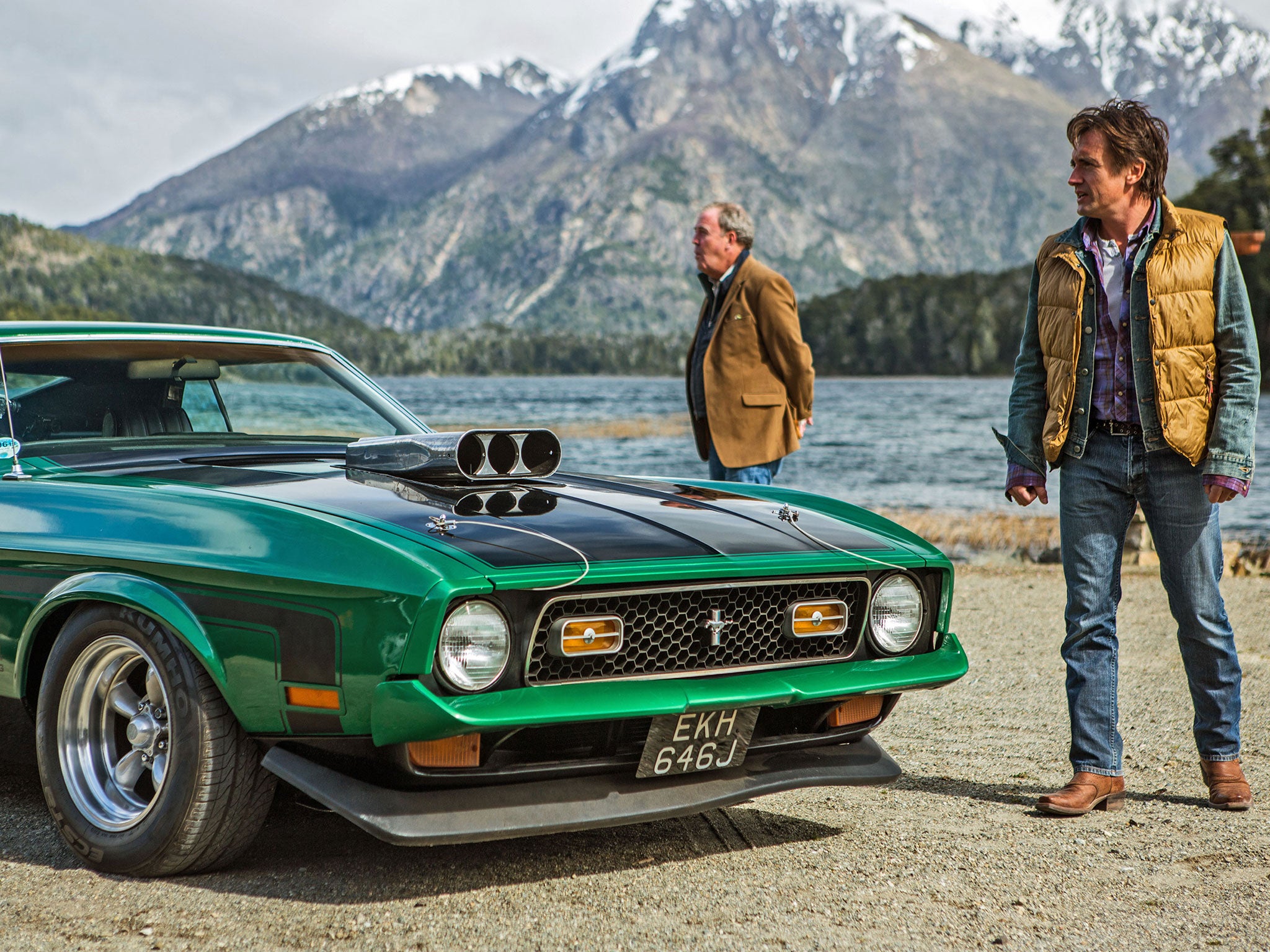Top Gear: Patagonia Special part two, review: Controversial petrol heads come to a buddy end
Like Butch and Sundance, who fled the law to Argentina, they made a run for it - though perhaps not as heroically as they implied

Your support helps us to tell the story
From reproductive rights to climate change to Big Tech, The Independent is on the ground when the story is developing. Whether it's investigating the financials of Elon Musk's pro-Trump PAC or producing our latest documentary, 'The A Word', which shines a light on the American women fighting for reproductive rights, we know how important it is to parse out the facts from the messaging.
At such a critical moment in US history, we need reporters on the ground. Your donation allows us to keep sending journalists to speak to both sides of the story.
The Independent is trusted by Americans across the entire political spectrum. And unlike many other quality news outlets, we choose not to lock Americans out of our reporting and analysis with paywalls. We believe quality journalism should be available to everyone, paid for by those who can afford it.
Your support makes all the difference.The final mocked-up scene of the much-anticipated Top Gear Christmas Special ended with presenters Jeremy Clarkson, James May and Richard Hammond replicating the cinematic end of Butch Cassidy and the Sundance Kid by running to face a hail of gunfire.
Happily for the BBC and Top Gear’s global fan base, this does not mean the demise of the show; in fact, the finale to tonight’s controversial programme was sufficiently dramatic that Clarkson and co may have dodged a bullet.
We tuned in ready to see the Top Gear team come under attack from an Argentinian mob, an episode recounted breathlessly by Clarkson in October and subsequently disputed by Argentina’s ambassador to the UK, Alicia Castro.
We had to wait until the last eight minutes of a 120-minute documentary spread over two days for the crunch scenes but the footage of the crew desperately trying to flee the country on the advice of the police was scary enough. Tailed by sinister motorcyclists, the BBC convoy was pelted with rocks by shadowy figures stood at the roadside.
Clarkson – who was not part of the attacked convoy – was earlier seen trapped with colleagues in a hotel room outside Ushuaia, peering through curtains as angry men gathered in the car park below. “They believe that the Falklands are Argentinian, they don’t like the British and they are in the hotel.” He was later seen on a walkie-talkie asking: “Are you saying we have to get the hell out of Tierra del Fuego?” Like Butch and Sundance, who fled the law to Argentina, they made a run for it, though perhaps not as heroically as they implied.
Top Gear’s mission was to reach the bottom of South America in V8 sports cars, build a “stadium” from shipping containers and play a game of car football with Argentinians in suitably blue and white striped motors, but also, cryptically, to “do diplomacy”. With great irony, Clarkson asked the camera: “What could possibly go wrong?” Whether the H982 FKL number plate on Clarkson’s Porsche 928 was a deliberate attempt to provoke Argentina, as the protesters claimed, is still a matter of dispute. But football posts were acquired, along with an ornate golden flower vase for a trophy that was never to be won.
The first 52 minutes of the show were not in the least controversial. The boys raced across open terrain, May fell off a horse and cracked three ribs. The only reference to the Falklands prompted Clarkson to rebuke his colleagues with the comment: “We’re supposed to be mending fences, not knocking them down.” The scenery and night skies were so stunning that Clarkson declared, over a dinner of barbecued beaver, that “Tierra del Fuego is the most beautiful place in the world”.
Despite Top Gear’s money-spinning global popularity, Clarkson is still on thin ice. In July, Ofcom found that he breached its broadcasting code by referring to an Asian man as a “slope” in a Top Gear Burma Special. Having stood by the Top Gear team during the October furore, the BBC must have taken great care in the edit suite.
But the most convincing witness that Top Gear wasn’t up to some of its past mischief was May at the moment they were ordered to quit Argentina. “But we haven’t had any animosity whatsoever in the whole trip,” he complained. “Everybody has been perfectly decent and charming.”
Join our commenting forum
Join thought-provoking conversations, follow other Independent readers and see their replies
Comments